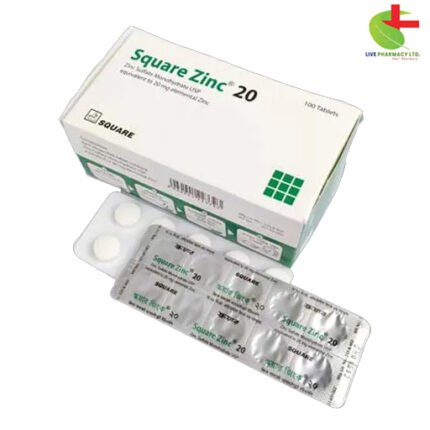Baritor 2
250.00৳ Strip
- Baritor is a powerful treatment option for adults grappling with moderate to severely active Rheumatoid Arthritis.
- Its selective inhibition of Janus kinase enzymes helps regulate signaling pathways crucial for inflammation and immune function.
- Recommended at a daily dose of 2 mg, Baritor can be used independently or alongside other medications like Methotrexate.
- Careful consideration of potential interactions and contraindications ensures safe and effective management of this chronic condition.
 Brand
Brand
|
Square Pharmaceuticals PLC |
|---|---|
 Generics
Generics
|
Baricitinib |
Indications
Baritor is prescribed for adult patients dealing with moderate to severely active Rheumatoid Arthritis, who haven’t responded well to one or more tumor necrosis factor (TNF) antagonist therapies.
Limitation of Use: It’s not recommended to use Baritor alongside other JAK inhibitors, biologic DMARDs, or potent immunosuppressants such as Azathioprine and cyclosporine.
Pharmacology
Baricitinib works by selectively and reversibly inhibiting Janus kinase JAK1 and JAK2. These enzymes play crucial roles in transmitting signals from various cell surface receptors involved in processes like haematopoiesis, inflammation, and immune function. By partially inhibiting JAK1 and JAK2 activity, Baricitinib modulates these signaling pathways, reducing phosphorylation and activation of STATs, thereby regulating gene expression.
Dosage & Administration
For adults, the recommended dose of Baricitinib is 2 mg once daily. It can be used alone or with Methotrexate or other Disease-modifying antirheumatic drugs (DMARDs). Baricitinib can be taken orally with or without food.
Pediatric Use: Baricitinib’s safety and effectiveness in pediatric patients haven’t been established.
Geriatric Use: Dose selection should be done cautiously in elderly patients due to potential decreased renal function.
Hepatic Impairment: No dosage adjustment is required for patients with mild or moderate hepatic impairment.
Renal Impairment: Baricitinib isn’t recommended for patients with estimated GFR below 60 mL/min/1.73 m².
Interactions
Co-administration of Baritor with strong OAT3 inhibitors (such as probenecid) can increase Baritor exposure.
Contraindications
- Anemia: Baricitinib should be avoided or interrupted in patients with hemoglobin levels below 8 g/dL.
- Lymphopenia: Avoid or interrupt Baricitinib in patients with Absolute Lymphocyte Count below 500 cells/mm³.
- Neutropenia: Avoid or interrupt Baricitinib in patients with Absolute Neutrophil Count below 1000 cells/mm³.
Side Effects
Commonly reported adverse drug reactions (ADRs) occurring in 2% of patients treated with Baritor include increased LDL cholesterol (33.6%), upper respiratory tract infections (14.7%), and nausea (2.8%).
Pregnancy & Lactation
Baricitinib is not recommended during pregnancy, and there’s insufficient data on its presence in human milk.
Precautions & Warnings
- Serious Infections: Avoid Baritor use in patients with active, serious infections.
- Tuberculosis: Don’t administer Baritor to patients with active TB.
- Malignancy and Lymphoproliferative Disorders: Weigh the risks and benefits before initiating Baritor treatment in patients with known malignancy, excluding successfully treated non-melanoma skin cancer (NMSC).
- Thrombosis: Use Baritor cautiously in patients at risk of thrombosis.
- Gastrointestinal Perforations: Exercise caution in patients prone to gastrointestinal perforation.
Dispensing
Baritor should only be dispensed with a prescription from a registered physician.
Overdose Effects
In case of overdose, monitor patients for signs of adverse reactions and provide appropriate treatment as necessary.
Therapeutic Class
Immunosuppressant
Storage Conditions
Store Baritor at or below 30°C, away from light and moisture, and keep it out of reach of children.













Reviews
There are no reviews yet.